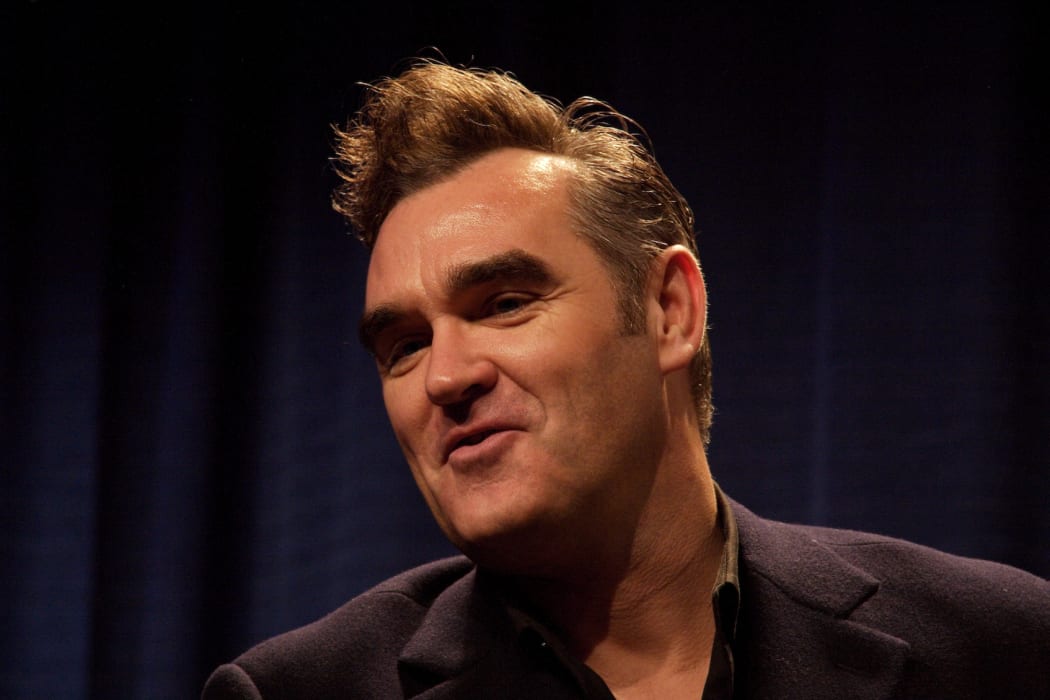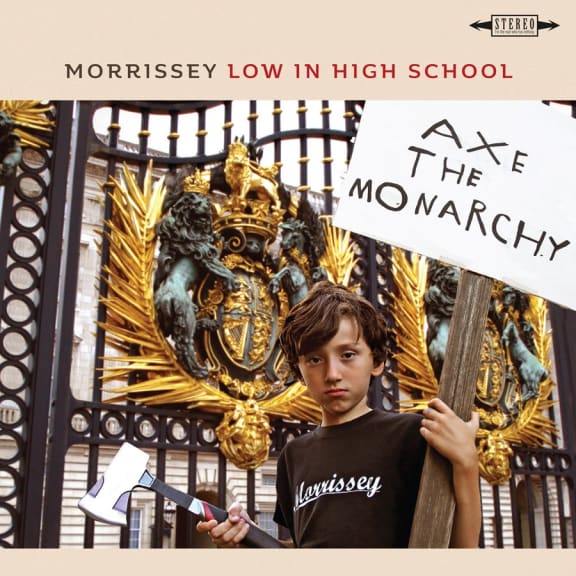Nick Bollinger listens to Morrissey's latest and wonders who the singer is taking revenge on now.

Morrissey Photo: creative commons
When the world won’t listen, rock music is a place where the disenfranchised have sometimes found they can be heard. Where else would an angry, melancholic outsider like Morrissey ever have been offered such a platform? But once you have occupied that platform for more than thirty years, with all the fame and fortune that accompanies it, what is there still to be angry about?

Low In High School Photo: supplied
Low In High School is the eleventh solo album Morrissey has made since the breakup of The Smiths, the band with whom he rode to success in the 80s. The title refers, he says, to his concern for the young, specifically “anyone feeling academically or spiritually low in high school”.
It’s a group he has long identified with. All the way back to The Smiths you’ll find his songs full of tormented schoolboys, sadistic schoolmasters or, as he called them in ‘The Headmaster Ritual’, belligerent ghouls.
At their best, his songs have been a glorious revenge for all the bullying and social pigeonholing a young misfit like Morrissey must have endured. And he’s still getting his own back in these new songs.
But if old wounds remain just as raw after all this time, Morrissey has acquired fresh grievances over the years as well, and that’s where the problem with this new record starts.
‘My Love I’d Do Anything For You’ opens the album with all the pomp and bombast of a prog rock opera, before settling into a kind of lumbering glam-rock, as Morrissey warns the youth of today about the ills of modern media. In another song ‘Spent The Day In Bed’ he advises us to “stop watching the news…”
Morrissey must have been tuned in to some form of media though, because in other songs he is more overtly concerned with the news of the day than on any previous record of his I can think of.
“Who Will Protect Us From The Police?” asks a valid question, and one that might be highly relevant in America where Morrissey now lives, though for some reason he ends the song chanting ‘Venezuela’.
Even less comprehensible is the song he simply calls ‘Israel’, in which he personifies the country as a kind of bullied child. Whatever your position on Israel and Palestine, it’s clunky songwriting.
Though Morrissey is a successful and wealthy pop star, the angry outcast inside him remains unchanged, and it’s that voice that comes out, even when he’s singing about world affairs.
But maybe that’s preferable to personal affairs. Once famously celibate, Morrissey in recent years seems to have decided that sex is not such a bad idea after all. And just the titles of songs like ‘In Your Lap’ and ‘When You Open Your Legs’ scream ‘too much information!’
But the most ill-judged song on the album is the one that outstays its welcome the longest. At close to eight minutes in length, ‘I Bury The Living’ finds Morrissey turning once again to political matters. Sympathetic as Morrissey usually is towards wretched outcasts, his empathy doesn’t seem to extend to soldiers, who he appears to be holding accountable for wars, rather than their masters.
Low In High School isn’t entirely without merit. Producer Joe Chicarelli has spared no detail in his lavish production and Boz Boorer, Morrissey’s long-time bandleader and co-writer, keeps coming up with new settings; there’s even a tango in a song called ‘The Girl From Tel Aviv That Wouldn’t Kneel’ (one of several tracks here that betray Morrissey’s current obsession with Israel.)
But there’s something unattractive about the tone of the album overall, and it comes down to Morrissey. What once sounded like the bullied outsider finding his voice and using it to strike back, now too often sounds like the laugh of the bully.

